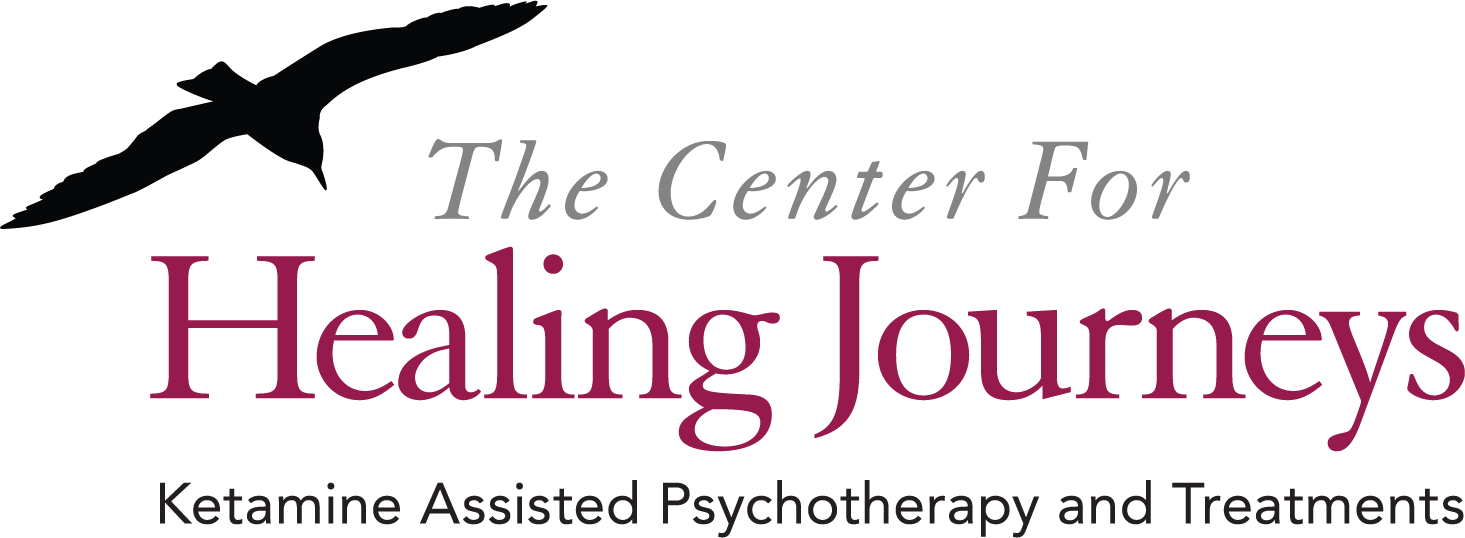FAQs
What is ketamine?
Ketamine is a medication most notably used historically to date as a ‘dissociative anesthetic’ often given to patients in emergency rooms to calm them and to induce a sense of ‘availability’ to treatments such as stitches, minor surgeries, etc… It has been commonly given children in ER’s at much higher doses than we use here therapeutically. It was widely used as a field medication for wounded soldiers in the army, both in Viet Nam and the Middle East. It is considered VERY safe at the doses in which we’ll administer it. Its use has very recently expanded because research has shown it is highly successful in having a positive impact on difficult to treat, neuro-rigidified psychiatric disorders.
How is ketamine used to treat Psychiatric Disorders?
Research over the past 15-20 years has shown that ketamine has a rapid and robust anti-depressant effect and there’ve been an array of studies showing ketamine is particularly effective in treating a broad range of disorders we might call neuro-rigidified disorders…people who experience thought, feeling and behavior patterns in a very stuck or rutted form. Some of the major disorders that fall into this category include treatment resistant depression, chronic suicidal ideation, ruminative anxieties, post traumatic stress disorder, obsessive-compulsive disorder, immobilizing fears of death in the terminally ill, and many of the addiction disorders.

More specifically, how does ketamine work?
Ketamine is a glutamate modulator. Glutamate is one of the more pervasive neurotransmitters in your brain and therefore, induces fairly widespread activation of neurons. If you think of the psychedelic experience as chemically induced neuronal stimulation or over-firing (… why we ‘see or hear things that aren’t there’ … that are a result of internal, chemically generated stimuli.), and combine this with the learning principal “What fires, wires!”, then’ll understand how ketamine might induce a broad array of new neuronal connections. Ketamine researchers are observing broad acting neuronal reactivation, … and ultimately actual measurable synaptic and dendritic growth has been observed, possibly reversing years of neuronal degeneration from things like alcohol abuse or the ‘shutting down’ associated with trauma history or depressive entrenchement.
What mental disorders does ketamine improve and how might it help me?
As indicated earlier, the mental disorders most commonly associated with a sense of feeling ‘stuck’ are the ones most effectively treated by ketamine. These include disorders such as treatment resistant depression, ruminative anxiety disorders, obsessive-compulsive disorder, post traumatic stress disorder, suicidal ideation, moodiness, and hopelessness.

What does it feel like to be ‘inside’ the ketamine experience?
The range of experience is very dose dependent. With a LIGHT DOSE, you may feel light headed, deeply relaxed, groggy, able to talk, and in a more open way.
A MEDIUM DOSE brings a more significant ‘trance state’ even while still maintaining a sense of self. Speech remains possible within the session and therapeutic insight can occur as we engage with our therapist. Often memories, hopes, regrets, and intentions are activated. It is not unusual to experience some vivid internally generated visual patterns & images. Though some anticipate these with fear, we find the context of a comfortable office environment combined with our supportive presence, the hallucinatory properties of ketamine are at least, curious and interesting, and at best, experienced as quite enjoyable; often euphoric. There is usually a powerful sense of openness and reflectiveness in this medium dose trance state. You might find yourself able to reframe past experiences from a standpoint of distant embrace and equanimity, and upon return to normal, awake consciousness, able to report back what happened without a lot of emotional charge. A sense of liberation or euphoria is commonly experienced with this level of dose.
With a HIGHER DOSE, people are fairly quiet, internally focused. The experience truly can feel like a ‘journey’, and though most people cannot recall specific elements of the experience with clarity, it is commonly felt to be transformative or mystical in nature.
How long does it take to recover from the treatment, after the sessions ?
Directly following a session, we take precautions to insure you feel well enough to go home. In other words, that you are alert and present. While the medicine has sedating and dissociating effects, we make sure these have subsided before you leave. Usually people are ready to leave between 2-3 hours after their session begins. It is similar to the recovery process following minor day medical procedures such as dental work or a colonoscopy. You must have someone (a responsible friend, spouse, etc…) drive you home. If this is not possible, you should talk to us first, before scheduling a treatment with the medicine. Expect feeling a bit hazy, perhaps unsteady on your feet, for a few hours. All patients receiving the medicine must agree (sign a contract) that they will not operate a motor vehicle within 8 hours after a treatment, and that they will be brought home by a responsible adult.
What are the broader effects I might feel?
Many report rapid relief of symptoms after ketamine treatments. It seems to induce in people a broad sense of openness, expansiveness, and a sense of no longer being weighed down by recurring anxieties, worries, fears, or thought patterns. There is often an openness to entertain new ways of thinking or make different choices. These feelings are thought to be a direct result of ketamine’s chemically induced neuro-plasticity; a rekindled propensity for learning.
Are there any negatives to using ketamine as a medicine? Is it addictive? Are there any long term negative side effects?
Ketamine has stood the test of time in the medical system. There has been no evidence of long term negative consequences at the frequency and dosages we are prescribing at the Center for Healing Journeys. At this level of use, it is safe, predictable, and effective. It is NOT considered to be a physically addictive medication. And though many people enjoy the experience under the influence of the medicine, it is difficult to become psychologically addicted, even if so inclined. Using it often is not particular appealing to most people. Additionally, it is a controlled substance that is not commonly prescribed outside of the highly supervised setting of hospitals, clinics, or offices. While some clinics do write scripts at very low dosages for home use in very conscribed circumstances, it is not particularly common. And when it has been appropriate, instances of addiction are extremely rare.

What are my chances of being helped with this treatment?
People who’ve been in therapy for years, whose treatment has been characterized as ‘maintenance oriented’ are finding themselves to be 70-80% responsive to ketamine assisted psychotherapy. With the protocol we offer at the Center for Healing Journeys, combining psychotherapy with this powerful medicine, we bring the best tools available to help you optimize your chances for positive change.
How is the Center for Healing Journey’s ketamine clinic different than other ketamine clinics?
Most existing clinics that offer ketamine treatment, do NOT offer the full support of Ketamine Assisted Psychotherapy (KAP). They are primarily medicine infusion programs run by anesthesiologists or medical doctors, without psychotherapists on staff. That method avails itself of the pharmacological benefits of the medicine alone. On the other hand, at the Center for Healing Journeys, we see that approach as beneficial…to a point. Additionally, we believe the best approach combines psychotherapy with the ketamine treatments so that we can take full taking advantage of ketamine’s potential for healing. The ketamine opens your neuronal network in a way that enables you learn new patterns. Without combining this with therapy you are left to continue living inside the same restrictive assumptions and environment that had left you feeling stuck in the first place. When you receive ketamine treatments, there is finite window of opportunity in which it’s particularly critical to listen very carefully to your deepest hopes and desires and reset your sights on new ways of being in ways you may have left for lost… to make the best use of revitalized capacity to learn. At the Center for Healing Journeys we will help you reconnect to your deepest self and align your day to day life with goals that are both realistic and more connected to your highest aspirations. You will want to focus on establishing new patterns such as taking steps to be more social, reconnect with your body through nutrition, exercise, dance, or yoga. We will help you consider these new possibilities so you can take the ‘right sized steps’ to optimize your chances of feeling success.

What if I am not interested in therapy but, just want to try the medicine?
Yes, some people may choose only to receive the ketamine treatments without ‘integration therapy’. We will discuss your needs and hopes for ketamine treatment at the intake session and help you decide what is right for you. Even those choosing the more basic pharmacological option receive some integration therapy at the end of each ketamine session. We feel it’s an essential part of effective treatment. Some patients already have their own therapists and we will find ways to work with your current therapy providers. While research shows high levels of improvement with the medicine alone (approx. 70%) early data from newer studies are showing stronger and more enduring results (80%+) by adding integration therapy to the mix. We feel it’s important for you to know the full psychological healing potential of this medicine and the ways you can use it. We will encourage all our patients to find their own way of optimizing the full range of biological, psychological, and transcendent benefits. Ultimately we deeply respect your work and your choices and we look forward to collaborating with you to come up with a plan that works best for you.


